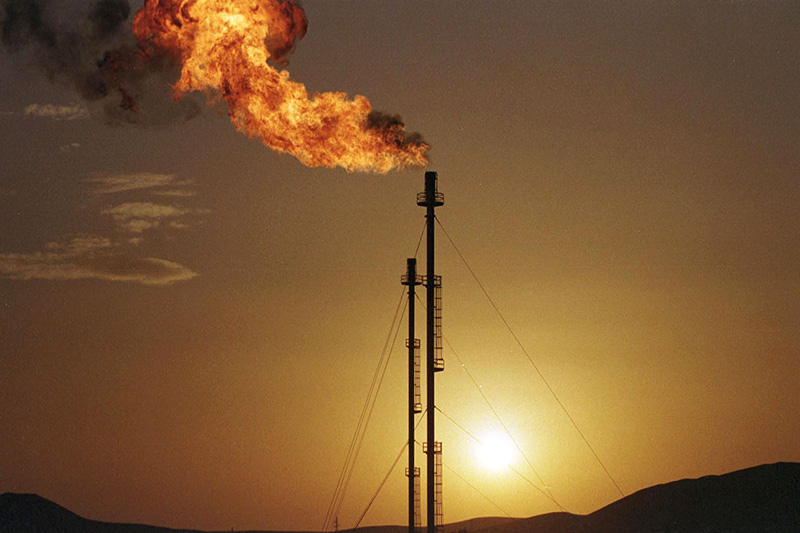By Meagan Clark - Lithuanian Energy Minister Jaroslav Neverovic implored U.S. Senators Tuesday to help expedite the permitting process for companies to export liquefied natural gas from the U.S. into the global market, saying his and other nations' dependence on Russian energy is crippling.
Neverovic joined American energy experts to testify before the Senate Committee on Energy and Natural Resources, chaired for the first time by Sen. Mary Landrieu, D-La. The hearing comes as two other congressional committees and the full Senate debates whether to send more natural gas overseas and as natural gas producers and their supporters insist that exporting the fossil fuel from the U.S. will dampen Russia’s influence and strengthen U.S. allies.
“I am… here to plead with you and your colleagues to do everything within your power to help us achieve that objective [energy independence] by expediting the release of some of your abundant natural gas resources into the world market,” Neverovic said.
The Soviet Union annexed Lithuania and the other Baltic States during World War II, though the U.S. never recognized the annexations as legal. They regained their independence with the Soviet collapse in 1991.
Lithuania is 100 percent dependent on Russia for its natural gas, and Lithuanian families and businesses pay 30 percent more for natural gas than citizens in other European countries, he said. To compare, Ukraine relies on Russia for about 60 percent of its natural gas supply, according to the U.S. Chamber of Commerce’s Institute for 21st Century Energy.
Currently, U.S. LNG exports to non-Free Trade Agreement countries (most countries that desire the natural gas) must be considered “in the public interest” by the Department of Energy. To expedite the process, President Barack Obama could authorize all pending applications to export LNG to be in the public interest, or Congress could amend the Natural Gas Act that stipulates the current process.
Neverovic said he has recently met with officials from the Obama administration, but when questioned, admitted that they did not promise anything regarding LNG exports.
“They talked nice to you but in fact they failed to give you the assurance that you hoped for that we would actually get the action,” Sen. John Barasso (R-Wy.) said to Neverovic during the hearing. “And I would think that if the administration is not ready to make that commitment today, it is dependent on Congress to act.”
In about 250 days, Lithuania will open its own LNG import terminal, to float in the seaport Klaipeda. The terminal will be the Baltic States’ first large-scale import LNG facility. The European Union countries currently have 22 operating LNG import facilities, but they have been operating at minimal capacities because LNG prices in recent years have been high.
All of the energy advisers testifying agreed that U.S. LNG exports would decrease the global price, which would reduce Russia’s monopoly power.
“Wherever U.S. natural gas exports go, even Asia, they would reduce Russia’s monopoly and benefit Europe,” David Montgomery, senior vice president of NERA Economic Consulting, said.
David Goldwyn, senior fellow at the Energy Security Initiative at the Brookings Institution, said that beyond accelerating LNG export permits, the U.S. should encourage the E.U. to build and connect more pipelines, soften regulations at entry points to pipelines and promote indigenous gas in those countries.
Edward Chow, senior fellow at the Energy and National Security Program at the Center for Strategic International Studies, agreed that there is much Europe can do to help itself.
“They need to look at developing further their own resources beyond renewables,” Chow said. “Why not look at their potential resources in oil and gas and coal rather than importing it from other places?”
The panel of witnesses also agreed that if Congress accelerated the permitting process for LNG exports, the signal sent to the global gas market and Russia in particular would be significant.
Since the majority of contracts for gas in Europe are based on long-term pricing, a signal sent to the market “would strengthen the buyers, knowing there will be more gas on the market, knowing they don’t have to attach themselves to these long-term contracts,” Neverovic said. “This signal would be very important.”
“It would be very important,” Goldwyn agreed. “It would impact the market cap. for Russian companies right now… when we do things in the market today, the impact is now.”
The House Subcommittee on Energy and Power, under the Committee on Energy and Commerce, is holding a similar hearing Tuesday afternoon at 1:30 (EST).
